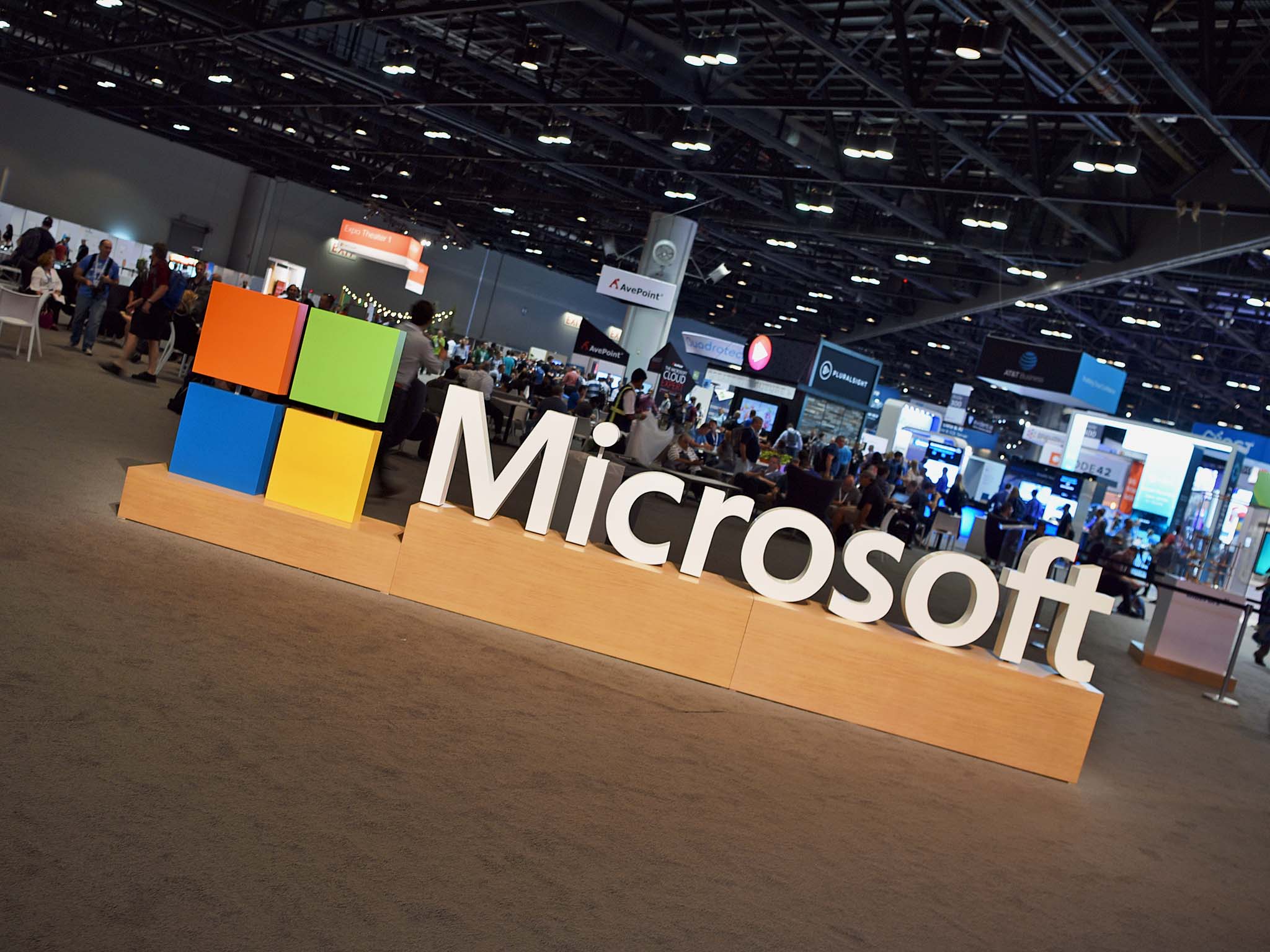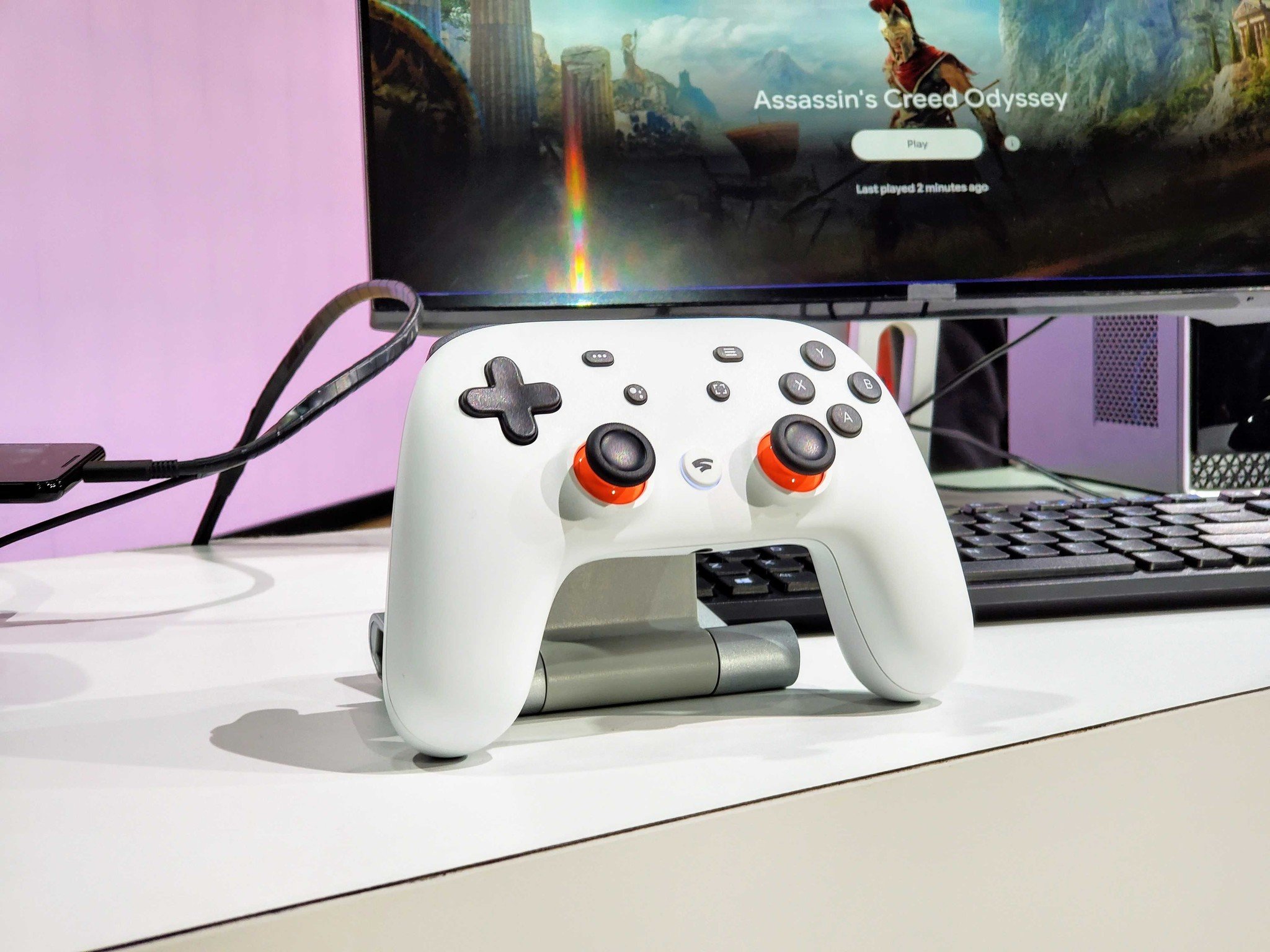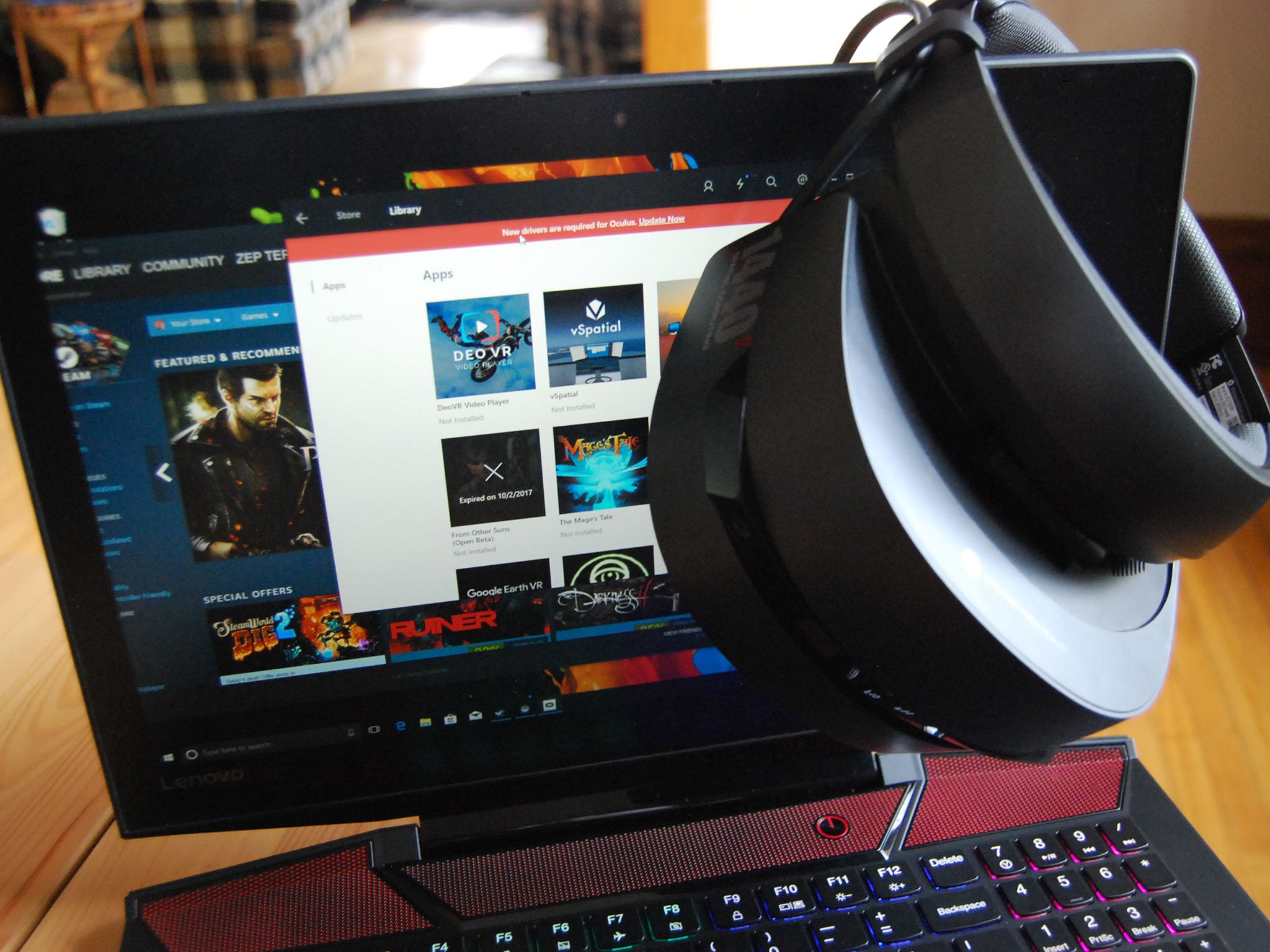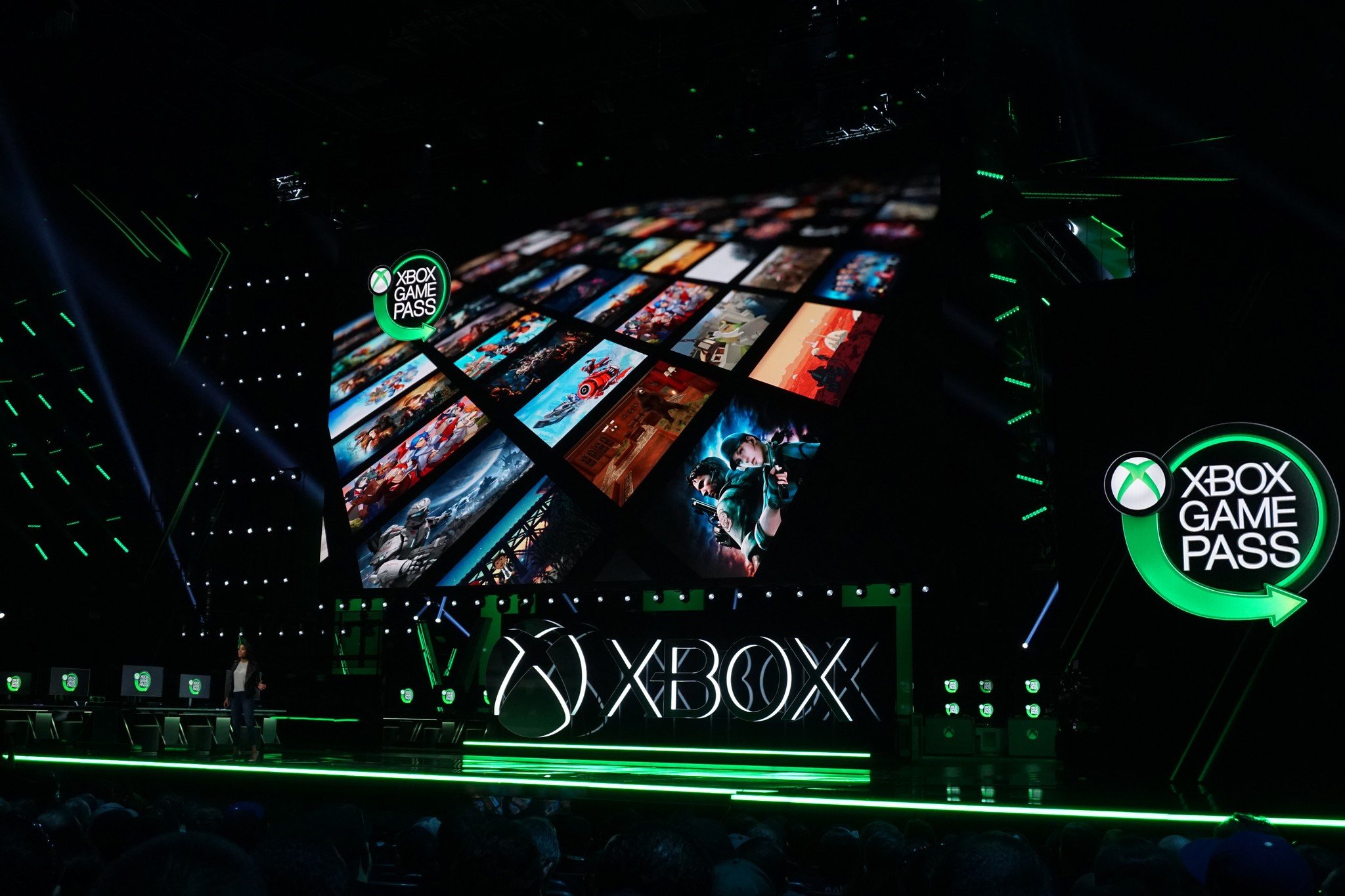This deal could help sell more Xbox Series Xs in the short term, but Microsoft has much bigger VR/AR fish to fry.
Microsoft claims its recent Activision Blizzard acquisition is about more than just gaming: it will "provide building blocks for the metaverse." So while everyone initially freaked out about Game Pass exclusives and whether Call of Duty will remain on the PS5 (it will), most people didn't notice that Microsoft's ambitions go well beyond the traditional console wars with Sony and Nintendo.
When I first read the announcement, I'll admit I groaned a bit. Since Facebook announced its own Metaverse plans last year, it's been the go-to buzzword for tons of companies. Particularly at CES, where companies claimed they were building it without any basis in reality. It's become hard to take any metaverse plans seriously when no one can agree on what, exactly, it is.
In this thread I will post every ridiculous usage of metaverse I see at #CES.
— VR Nima (@NimaZeighami) January 5, 2022
Sometimes, IPs matter more than products.
What's clear is that Microsoft "absolutely plans" to adapt its IPs from traditional gaming to a "full 3D world", as CEO Satya Nadella told Bloomberg last year. The VR/AR technology may not be ready for an immersive Micro-verse, but Nadella has spent his CEO tenure hoarding IPs like Minecraft, Elder Scrolls, and now World of Warcraft. All of which could easily spin out into separate corners of a Ready Player One-esque playground down the road.
Sony will be just fine with its Playstation Studios exclusives; as Microsoft itself said in its press release, even this acquisition leaves it trailing Sony and Tencent in annual revenue. And Microsoft stands to make a fortune off of PS5 gamers playing Call of Duty, so why rock the boat?
Instead, I believe the Microsoft-Activision acquisition will matter more in the future mixed-reality wars with Google, Meta, Sony, and Apple. Microsoft isn't as big a name in the VR/AR space, but it's playing the long game by recognizing that sometimes, IPs matter more than products.
A Microsoft-Meta acquisition war, with the FTC as the arbiter
 The HP Reverb G2 running on Microsoft's OS
The HP Reverb G2 running on Microsoft's OS
On the surface, Meta and Microsoft get along well enough, with Microsoft recently agreeing to bring Teams to Quest 2 headsets. But behind the scenes, they're fighting for the same resources and market share.
Talent-wise, Microsoft recently lost 100 Hololens employees, with much of its talent transferring directly to Meta. The same goes for Apple, which lost about 100 engineers to Meta and began giving $180K bonuses to its AR/VR engineers so they'll stay. Meta is actively plucking the best and brightest from its competitors.
Then you have to look at Meta's rabid acquisitions of popular VR hardware and software developers, including Beat Games (Beat Saber), BigBox VR (Population: One), and Supernatural — the latter's $400 million acquisition leading to an FTC antitrust investigation. It even bought a VR lens startup originally bankrolled by Valve, which triggered another lawsuit.
Meta is doing everything it can to entrench itself as the VR/AR authority and thwart other rivals from stepping up. Bloomberg even claims Activision shopped itself to Meta as a potential buyer first before going to Microsoft, which would have certainly fast-tracked a Call of Duty VR game on the Quest 2. But Facebook's privacy issues, combined with Activision's toxic workplace issues and the FTC's increased scrutiny, ensured it was never likely to happen without causing a mess.
Instead, it's Microsoft who will continue to shore up its gaming monopoly, just as Congress pushes a major tech antitrust law. The Activision Blizzard deal flies in the face of that, and President Biden's FTC could certainly choose to step in, as analyst Gene Munster recently suggested to CNBC.
Whatever happens legally, this deal will give Microsoft even more popular AAA exclusives to push, while Meta still primarily relies on talented indie developers for its success. If Microsoft can translate CoD, Overwatch, or Diablo into compelling hybrid-VR experiences as Sony will with its PS5 VR games, that could fling it forward on the path to metaverse success. And that's not even counting Minecraft, Halo, its new Bethesda IPs, and the rest of its current assets.
Microsoft can't push its "metaverse" if no one uses its VR platform.
The problem is that I'm not convinced Microsoft can pull off Nadella's metaverse ambitions. Windows Mixed Reality (WMR) headsets like the HP Reverb 2 prove that the company is taking the software side of VR seriously, but a glance at the most recent SteamVR hardware survey shows only about 5.5% of users have a WMR headset. And SteamVR doesn't come close to the adoption numbers of the standalone Quest 2.
That's where Microsoft needs to improve for this deal to matter. In my mind, it has two paths to higher adoption, and neither involves wired VR. Either its PC-dependant headsets need to connect wirelessly, or it needs to release a standalone Windows device like the rumored Valve Deckard headset, one that attracts more than just Windows users.
If Microsoft ever wants VR Game Pass to succeed, all-in-one VR is the way to go. For that, it will likely have to rely on the cloud.
Stadia is more of a problem for Microsoft than you'd think
 U.S. soldiers wearing the Microsoft Hololens
U.S. soldiers wearing the Microsoft Hololens
Google and Microsoft are two VR/AR companies whose track records inspire more pessimism than optimism. Google Glass and Microsoft Hololens inspired some incredible hype that has since fizzled over the past six-ish years of expensive Enterprise editions.
Microsoft's most recent $22 billion Hololens contract with the U.S. Army shows where its true priorities lie. Why focus on Call of Duty for teens when you can get more money for actual advanced warfare? Allegedly, the team is stretched thin supporting this contract, which doesn't leave much room for anything else. As for Google, it has spent far more time on smartphone AR but hasn't done anything that exciting with it in years.
In this context, the Google Project Iris leak left us intrigued but wary of further disappointment. It's a new AR/VR headset designed like a "pair of ski goggles" that'll "remotely render some graphics and beam them into the headset via an internet connection." In other words, it'll likely use the power of Stadia cloud computing for a standalone design when it launches in 2024.
When it comes to cloud computing for gaming, Google and Microsoft are the two leading players, giving them a significant edge for portable AR. Whether either can execute this advantage effectively is another question entirely.
Stadia had a rough 2021, mainly thanks to Google's shuttering of its games studio but also due to the lack of exclusives. But it's still technologically quite impressive and has a loyal cult following. Google has begun licensing it out to third parties like AT&T for their own cloud gaming purposes. It works, even if Google hasn't supported it with major gaming acquisitions.
The problem, of course, is that if you weigh Stadia against Xbox Game Pass Cloud gaming, Microsoft wins. Xbox's hundreds of 1st- and 3rd-party options for $15/month, or Stadia Pro's 30-or-so free games that are mostly older AAAs or cute indie games for $10/month? It's no contest.
Add in Microsoft's monopolistic spending habits bringing even more titles onto Game Pass, and Stadia as a service can't keep up. But Stadia as a processing power source for VR/AR, backed by all of Google's beloved apps and experience with ARCore and Google Daydream? That very well could lead to something special. Assuming, of course, Google doesn't underfund and kill Project Iris like it kills so many of its promising projects...like Daydream.
Microsoft has enough exclusive IPs to fill a pool and dive into Scrooge McDuck-style, and its Azure expertise has turned xCloud into a perfectly serviceable platform (even if it can't handle Halo Infinite perfectly). But with its Hololens team tied up in the army business and no new VR/AR headset in sight, it's not clear if Microsoft will be able to take advantage of these resources for years.
Suppose Google leverages its Android and VR knowledge into an exciting mixed-reality device with great apps and reliable Stadia support running over 5G networks, while Microsoft dawdles with PC VR and $3,000 AR headsets. In that case, Xbox VR/AR may have trouble getting off the ground until Google and the rest have already gained a foothold.
The acquisitions war to come
My colleague Jerry Hildenbrand argued that consumers chose the Apple-Google duopoly in the mobile space, making it impossible for competitors like the Windows Phone (RIP) to succeed regardless of how good the software was. Why? Because developers stuck to the Apple and Google Play app stores, so people felt left out with any other device.
Microsoft has the killer apps this time. Now it just needs the killer hardware.
So when it comes to VR/AR, these behemoth IP acquisitions may end up mattering just as much as how well the hardware works. No small third-party VR device will succeed, no matter how cheap or innovative, if parents know that Minecraft VR for the kids or Call of Duty: Warzone for their teens is only available on a Microsoft headset. Or, if AR devices become more ubiquitous for productivity, people will absolutely care whether it supports Google Workspace or Microsoft Office 365 apps.
So in the ensuing years it takes for VR and AR to reach their full potential, Microsoft, Sony, Meta, Google, Apple, and a few other rivals will keep rushing to acquire as many assets as possible. Gaming IPs, promising startups, and mixed-reality hardware will all be up for grabs. Unless the FTC or EU steps in and forces these companies to stop.
We'll see in a few years whether it's hardware or software advantages that give companies the edge in their monopolistic metaverse wars.





Tidak ada komentar:
Posting Komentar